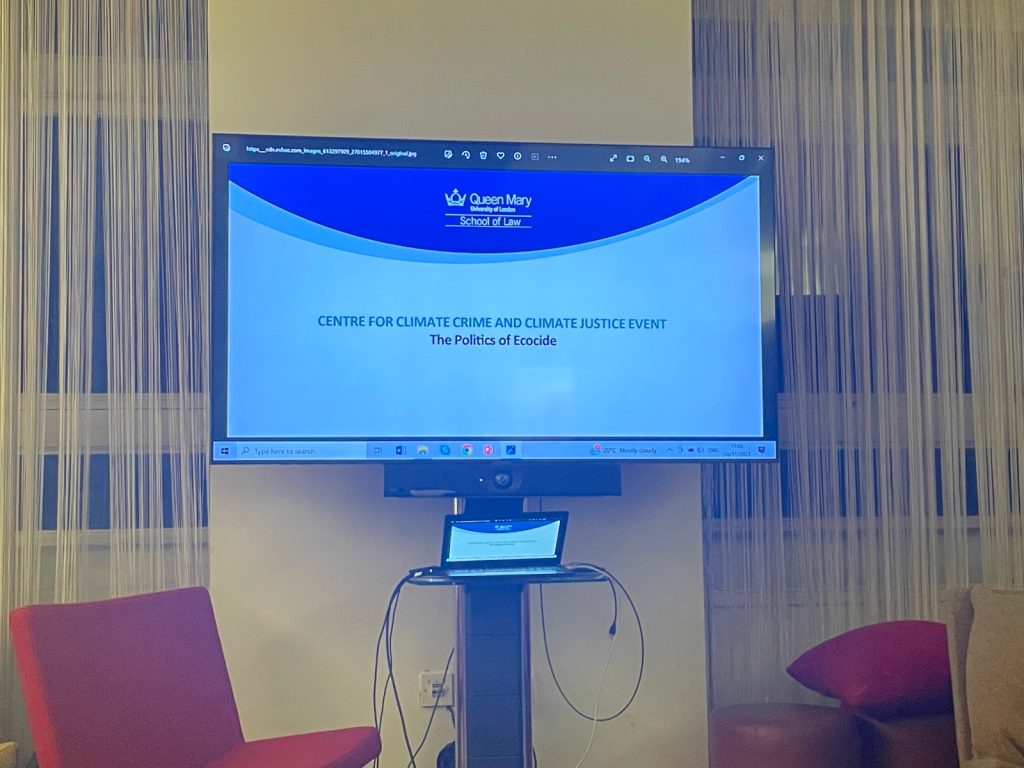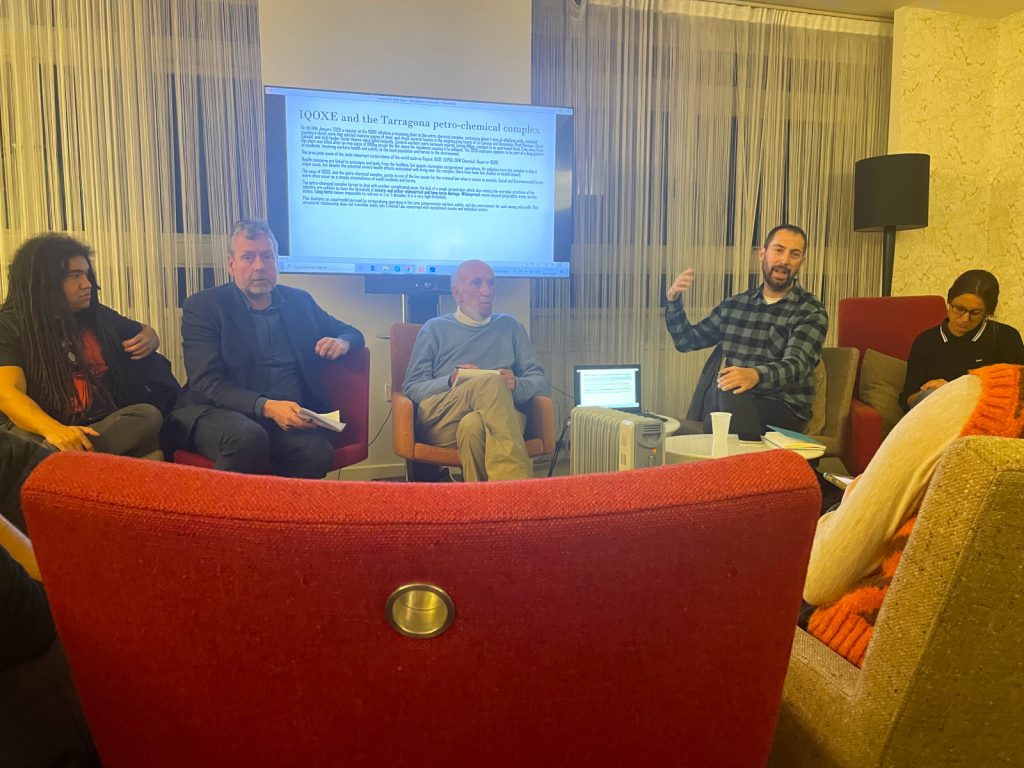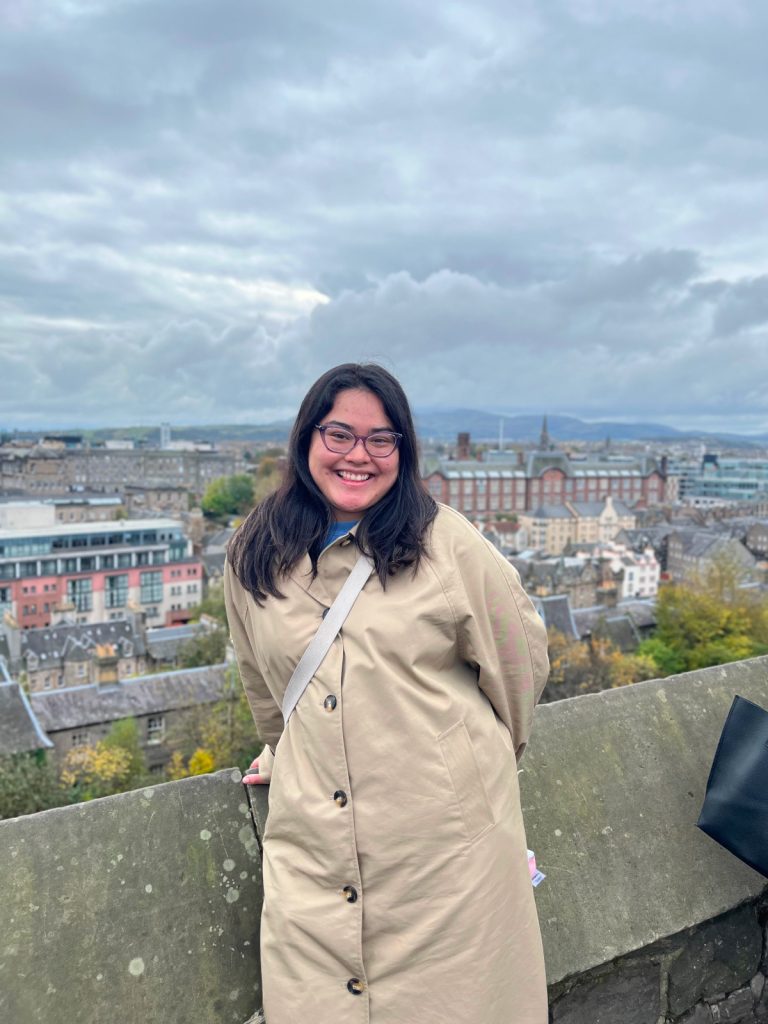How underdeveloped countries are mistreated in the political and legal realms of Ecocide

Ecocide is one of the most politicized topics in the fields of International Law and Environmental Law. Now what is exactly ‘ecocide?’ Because as of now there is no ‘clear’ definition in international law that describes what this is exactly, from either a political, social, or legal context.
The meaning of ‘ecocide’ from a semantics perspective can be broken down with eco Greek meaning for ‘home’ and cide Latin meaning to ‘kill.’ It is often talked about in relation to genocide studies and the expanding the field of environmental law from an international context.
In an insightful and enlightening event at Queen Mary’s University School of Law at the Centre for Climate Crime and Climate Justice event, unique panelists with rich academic, political, and legal backgrounds all came together to tackle the concept of ecocide and its relevance within international law.

Mireia Vehi, a member of the Spanish Parliament (who will be leaving office in December 2023) spoke of how politicized the term has become in the legal realm of international law. She describes ecocide as being “defined as the mass destruction of nature by humans. It threatens all human populations who are dependent on natural resources for maintaining ecosystems and ensuring their ability to support future generations.”
Another panel member was American legal scholar Richard Falk, who was the UN Special Rapporteur on the Situation of Human Rights in the Palestinian Territories Occupied since 1967 from 2008-2014. He defines ecocide as “the unlawful or wanton acts committed with knowledge that there is a substantial likelihood of severe and either widespread or long-term damage to the environment being caused by those acts.” Mr. Falk shared a personal experience of a visit Vietnam with his wife, where they were shocked to see that a clinic had been established because many Vietnamese people (including children) were exhibiting side effects that impacted their physical mobility. The audience were captivated by what he went on to say:
“The first case of ecocide was that of the US Vietnam War and then along the way ecocide touches every part of the developing world; it affects indigenous people, minority communities, and other vulnerable groups, even today.”
Dr. Ignasi Bernat, (Visiting Senior Lecturer in Queen’s Mary University School of Law) shares three contemporary cases of ecocide in which the role of politics has played a monumental role, especially on the domestic and international level.
The first case, is that of the Repsol’s Oil Spill in Peru on January 2022. This resulted in nearly 12,000 barrels of crude oil spilling into the sea off the coast of Peru. The spillage was caused a facility of La Pampilla refinery, which is owned by Respol in Peru. The spill has been explicitly cited as an example of ‘ecocide’ because it severely impacted the fish, sealife, and seabirds. Additionally, dozens of small business were forced to close and with an estimated 5,000 people were also thought to have lost their livelihoods.
The second case concerns Santander Bank, who Bernat notes have played a role in deforestation in Paraguay. This has resulted in forcing indigenous people to leave the homes in which generations have lived for centuries. Dr. Robert Knox, who is a Senior Lecturer explains the ‘capitalistic’ component of ecocide. But he poses a very valid question: “Who are the actors that benefit from the deforestation of developing countries?” An intrigued audience sits rapt and Dr. Knox responds: “Corporations, such as Santander and their shareholders benefit from this, gaining a sum of $5.5 billion dollars.
This assertion took me by surprise, Santander is where many of our student loans come from.
The third case mentioned was the IQOXE and the Tarragona Petro-Chemical Complex explosion on January 14th 2020. This involved a major explosion at the Chemical Industries of Ethylene Oxide (IQOXE) in which three people died and seven were injured. The substance released was toxic and many of the survivors now suffer from respiratory illnesses. Additionally, there has been no accountability from a corporate or legal aspect.

All three cases demonstrate that ecocide is a prevalent issue, but continues to be swept under the carpet, with no sense of accountability from government entities. It is a time for the voices of the voiceless to be heard. The politics of ecocide is gradually making its way to the mainstream news in some countries, but it is rarely acknowledged on an international level. It is important to keep highlighting these events because the people who are impacted most heavily from ecological disaster are the most vulnerable in society.
Victoria Rivera is an international student. Originally, she is from Los Angeles, California and has moved around quite frequently (living in other countries as well). She is pursuing her LLM in Public International Law and wants to pursue a career in being an IP attorney in the US or a glorious career in legal journalism. She loves to talk and interact with people, and is a big fan of Star Wars, Ted Lasso, and Japanese anime. Fun fact: she loves to write short stories and read romantic novels.
